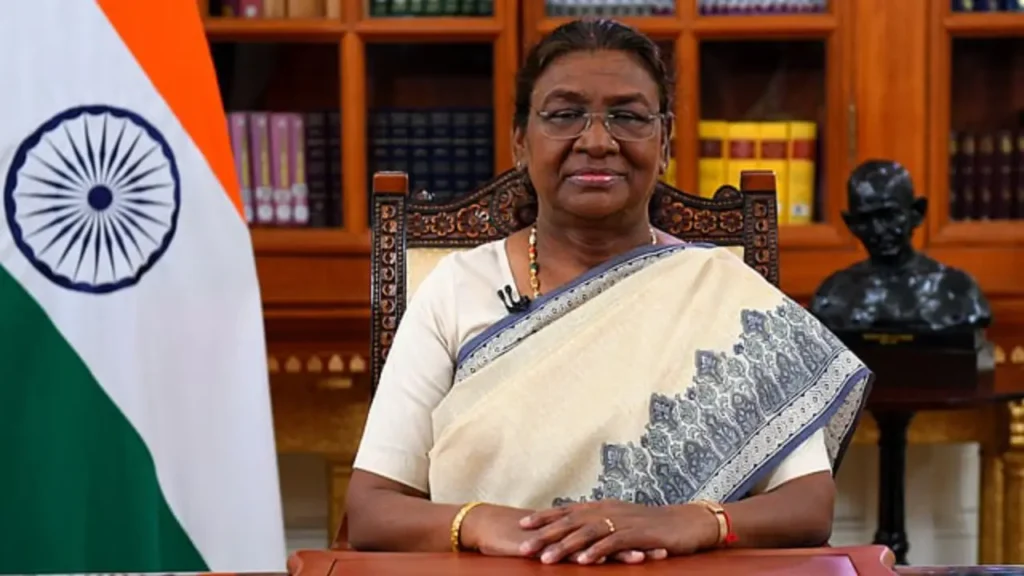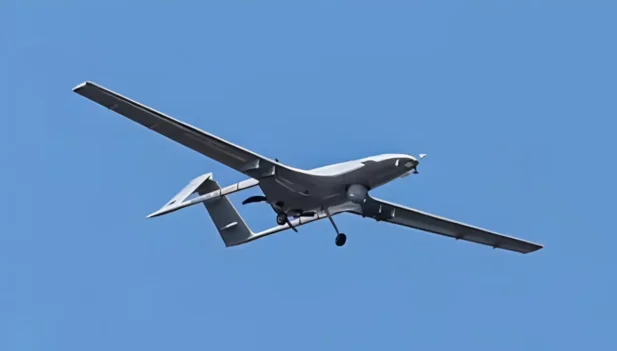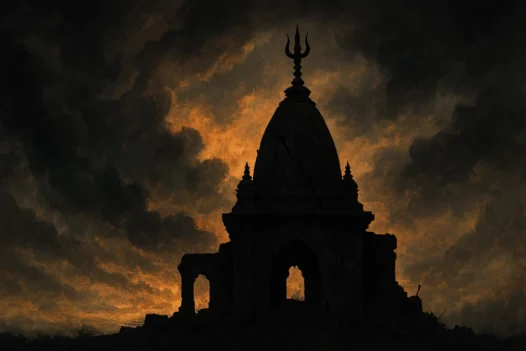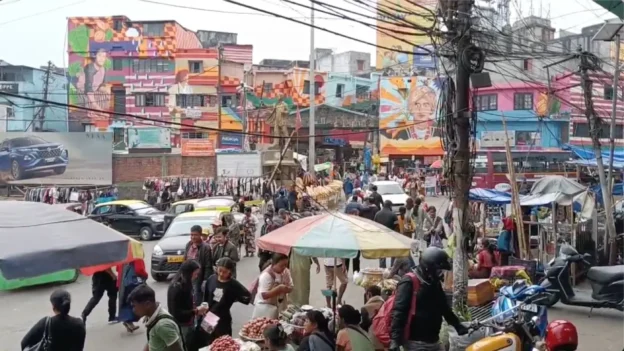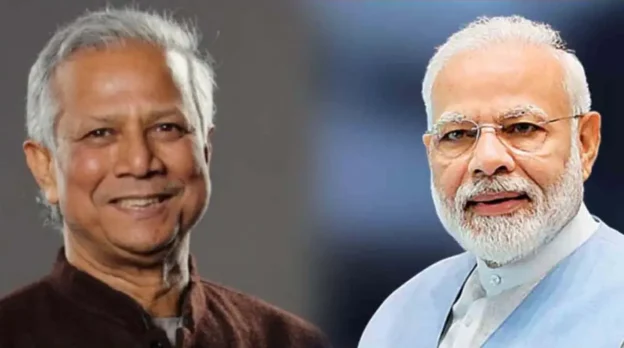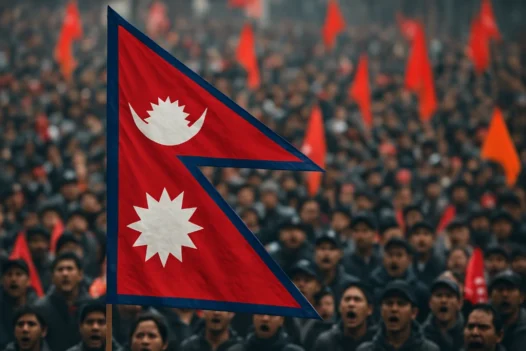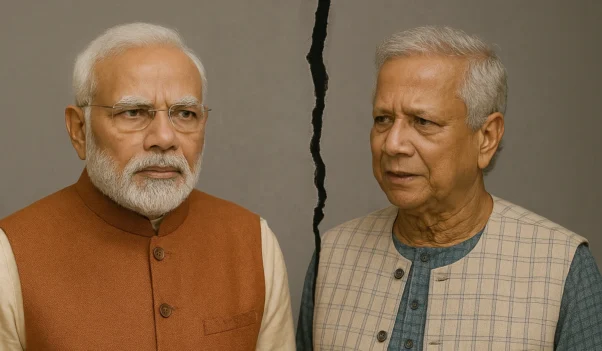The imposition of President’s rule in Manipur has marked a decisive turning point in the state’s ongoing conflict, bringing with it a significant uptick in security operations targeting insurgent groups. These groups, particularly the valley based Arambai Tenggol, had been exploiting the communal violence that erupted in May 2023. With the central government assuming control, the security forces have received clear instructions to dismantle all insurgent groups, irrespective of their affiliations. The crackdown is no longer confined to the valley-based Meitei insurgents, with armed groups from the hills also coming under scrutiny.
The security forces’ strategy goes beyond simply addressing the resurgence of extortion and weapon looting. Senior security officials reveal that the new directive is focused on dismantling the operations of those “freely moving with arms” and holding them accountable, whether directly implicated or indirectly involved in fostering the violence. This crackdown, according to security insiders, reflects a shift from dealing with isolated incidents of insurgency to addressing the systemic issues that have allowed armed groups to thrive in the region. With nearly 100 arrests already made since January 17, including key members from various insurgent factions, the government is signalling its resolve to eliminate the threat posed by these groups and restore stability to Manipur.
In line with these efforts, the Governor of Manipur, Ajay Kumar Bhalla, issued a notification on February 20 calling for the voluntary surrender of illegally held weapons and ammunition. The Governor appealed to all communities, particularly the youth in both the Valley and Hills, to return looted arms to the nearest police stations or security camps within seven days. He assured that no punitive action would be taken if weapons were surrendered during this period, but warned of strict consequences if they were not. This initiative further underscores the government’s commitment to de-escalating the situation and paving the way for lasting peace, while signalling its firm stance on addressing the growing insurgent threat.
At the same time, the context of the crackdown lies in the persistence of the communal conflict that began in May 2023, which continues to see violent clashes between Meitei and Kuki groups. The insurgent groups, especially those linked to Meitei underground factions, have capitalized on the chaos to extract money from various sectors. Victims of these extortion attempts have ranged from business owners to politicians, government workers, and even schools and health centers. The security forces’ response has been swift, with almost 100 insurgents arrested across the state since January 17, and 15 war-like stores confiscated during raids. Areas like Bishnupur, Imphal East, Imphal West, Jiribam, Kakching, and others have been placed under heavy security deployment, with a particular focus on the Imphal valley, where attacks on police stations by Arambai Tenggol cadres have been reported. There are also reports suggesting that reinforcements will soon be arriving in Imphal, with the intention of bringing the state fully under the control of security forces.
In addition to arresting insurgents, the police have apprehended members of Arambai Tenggol for collecting money from truck drivers along the Imphal-Jiribam highway. Security officials are of the view that the ongoing crackdown has forced cadres of the group are “staying out of sight” and have hidden their weapons. But at the same time reports continue to surface of the group issuing threats. This underscores the persistence of extortion as a major issue, even amidst heightened security efforts.
A notable development in the government’s approach is the formation of an “anti-extortion cell,” which includes representatives from the police, Assam Rifles, and the Army. According to a senior security official, the cell will continue its efforts to combat extortion, as the public regularly submits complaints about threats and intimidation.
On the ground, many residents have expressed relief, welcoming the increased presence of security forces in the hope that it might restore peace in the state. “I think the President’s rule is fine, although we don’t’ want it for long, but at least it gives me and my family relief so that we can focus on our children’s future,” said Surendra Laishram a resident of Imphal West.
However, the imposition of President’s rule has not been without controversy. The Coordinating Committee on Manipur Integrity (COCOMI), along with several other groups, has strongly opposed the move, calling it a “ploy” to destabilize Manipur further. COCOMI views the imposition of President’s rule as “undemocratic”, especially given the BJP’s absolute majority in the state. Mass protests have erupted in Imphal, demanding the lifting of President’s rule and the appointment of a new Chief Minister. These protests point to the political divide in the state, where many see the central government’s intervention as a violation of their political autonomy.
A senior security official said that there have been attempts to take out rallies and obstruct the police, Assam Rifles and the army from conducting operations. “Some Meira Paibi in some areas have tried to obstruct but we managed to over those,” he said. Women’s groups have been calling for a rollback of the President rule’s and replace it with a popular government.
On the other hand, the Kuki-Zo Council and the Zomi Council have supported the decision to impose President’s rule but have remained firm in their demand for a separate administration. They argue that while President’s rule may help address the immediate crisis, it does not offer a long-term solution to the ethnic violence. Kuki civil society groups believe that the imposition of President’s rule will create a more conducive environment for political dialogue, but the demand for a separate administration remains a key point of contention.
The imposition of President’s rule is not just an internal matter for Manipur but also a reflection of broader geopolitical concerns. Intelligence reports indicate that radical groups from Bangladesh are attempting to exploit the situation in Manipur by forming alliances with insurgent factions to destabilize the region further. These groups are said to be looking to capitalize on the turmoil, with the goal of creating disruptions in India’s northeastern states, which are critical to the broader geopolitical dynamics involving Myanmar.
The government’s seriousness in addressing the insurgency is evident in the arrests of key insurgent members, including those from the People’s Liberation Army (PLA), the United National Liberation Front (UNLF), and the Kangleipak Communist Party (KCP), all of whom have been linked to transborder insurgencies. These groups have not only been part of the insurgency in Manipur but have also been involved in the ongoing Myanmar conflict, with the PLA in particular offering support to the Burmese military junta in their fight against the People’s Defense Forces (PDF).
The arrests of members of the UNLF Pambei faction, which had signed a ceasefire agreement with the government in 2023, further underline the government’s determination to tackle insurgency, regardless of prior agreements. Similarly, security forces have arrested eight members of the Kuki National Army (KNA) from the hills, despite the KNA’s status as a signatory to the Suspension of Operations (SOO) agreement. This shows the government’s commitment to cracking down on insurgent groups, even those that have formally entered into peace accords.
The Kangleipak Communist Party (KCP), one of the oldest insurgent groups in the region, is reportedly pushing for inclusion in the Suspension of Operations (SOO) agreement. Sources close to the group suggest that the current state of affairs could significantly alter the dynamics of insurgency in Manipur, with a growing sense that the government is intent on resetting the insurgency landscape in the state.
The most recent operations against insurgent groups reflect the urgency with which security forces are responding to the insurgency. In two separate operations, Assam Rifles and Manipur Police apprehended six cadres of the People’s Revolutionary Party of Kangleipak (PREPAK-Pro) and Kangleipak Communist Party-People’s War Group (KCP-PWG), and seized war-like stores, including pistols and ammunition. These operations form part of a broader strategy to address the ongoing militant activity in the region, with the recovery of arms and ammunition being a key aspect of the security forces’ efforts.
One such operation took place after insurgents from the KCP (PWG) looted weapons from the Kakmayai police outpost in Thoubal district on February 8. Following a series of intensive search operations, security forces recovered eight weapons, including AK rifles and SLRs, and dismantled an insurgent hideout in Langathel Chingkhong. Further operations have led to the recovery of additional weapons and explosives, such as AK-56 rifles, IEDs, and SMC carbines, underscoring the growing momentum of security forces in addressing the insurgency.
The imposition of President’s rule in Manipur represents a strategic shift in how the state’s security forces are addressing insurgency. The central government’s crackdown on insurgent groups signals a clear commitment to stabilizing the region, but it also highlights the complexity of the situation. While the increased security presence has been welcomed by many, the political opposition and ethnic divisions in the state point to the challenges of finding a lasting solution. The ongoing unrest, the threat of external influence, and the enduring political grievances of both Meitei and Kuki communities suggest that the path to lasting peace in Manipur remains fraught with obstacles. The central government’s next challenge will be balancing security measures with political dialogue that can address the aspirations of all communities in the state.

